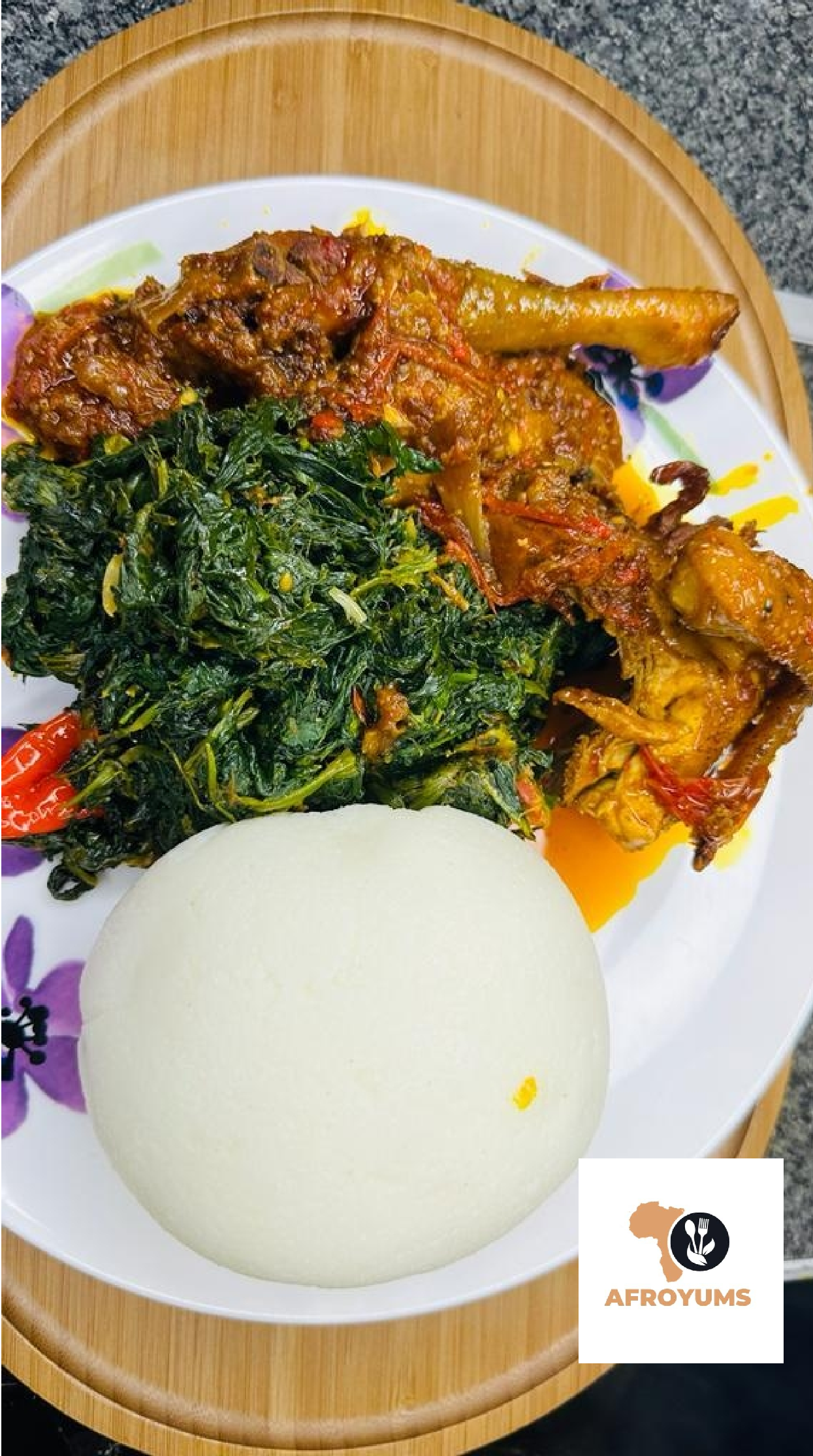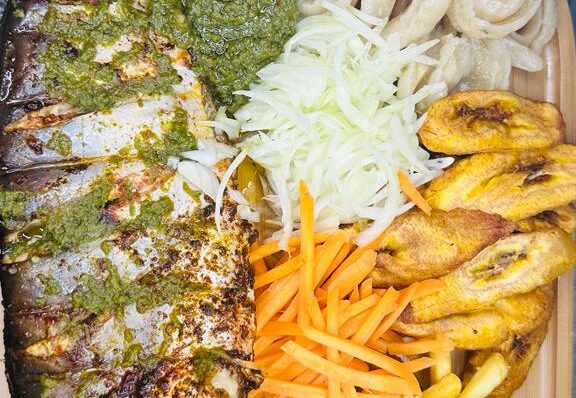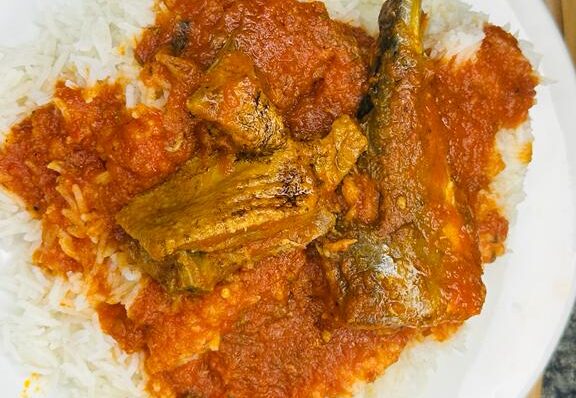Once upon a time, in the heart of West Africa, there was a dish that captivated the taste buds of locals and visitors alike. This dish, known as Kati Kati, is a true gastronomic masterpiece that combines the richness of hard chicken, the freshness of Njama Njama (or spinach), and the comforting texture of corn fufu. Join me on a journey to discover the origin, preparation, culinary experience, legacy, tradition, variations, and nutritional aspects of this West African delicacy.
Origin and Cultural Significance
Kati Kati traces its roots back to the northwest Region of Cameroon in Africa ,It is particularly popular among the Nkom people , who are known for their rich culinary traditions. The dish holds a special place in their culture and is often prepared for festive occasions, family gatherings, and celebrations.
Ingredients
To create this tantalizing dish, you will need:
- Hard chicken (also known as Country fowl): The use of hard chicken adds depth and intensity to the flavor profile of Kati Kati.
- Njama Njama (can be improvised with spinach): This leafy green vegetable provides a vibrant color and fresh taste to the dish. If Njama Njama is not available, spinach can be used as a substitute.
- Corn flour: This ingredient is essential for preparing the traditional corn fufu that accompanies Kati Kati.
Preparation
Step 1 (Chicken preparation):
- Clean and burn the chicken skin to remove any impurities.
- Sauté onion and tomato in palm oil until they become fragrant.
- Add the chicken into the mixture and season with Maggi (a popular seasoning cube), salt, and pepper.
- Pour a cup of water into the pot and allow the chicken to cook for approximately 40 minutes, until the water evaporates completely.
Step 2 (Njama Njama):
- Wash the vegetable thoroughly and boil it for about 10 minutes.
- Chop the boiled vegetables and squeeze out any excess water.
- Add the Njama Njama (or spinach) into a pan with sautéed onion and tomato.
- Season with Maggi, salt, and pepper, and allow it to simmer.
Step 3 (Corn fufu):
- Mix a small portion of corn flour with cold water to create a paste.
- Add the paste into a pot of boiling water and stir continuously until it thickens.
- Gradually incorporate more corn flour while mixing.
- Add hot water as needed and allow the mixture to cook until it reaches a smooth consistency.
- Wrap the corn fufu in a banana leaf or serve it in a bowl alongside the chicken and
- vegetable stew.
Culinary Experience
As you take your first bite of Kati Kati, prepare to be transported to a world of bold flavors .The tender meat of the hard chicken, infused with the blend of onions and tomatoes, creates a centrepiece for the dish. The Njama Njama (or spinach) adds a refreshing element that balances the richness of the chicken. Lastly, the corn fufu provides a comforting base that soaks up all the delicious juices from the stew.
Legacy and Tradition
Kati Kati holds significant cultural importance in Cameroon. It is often prepared during special occasions such as weddings, festivals, and family gatherings. The dish symbolizes unity, abundance, and celebration within the Bamileke community. Sharing Kati Kati with loved ones is not only an act of nourishment but also an expression of cultural heritage.
Variations
Like many traditional dishes, Kati Kati has evolved over time, giving rise to various regional and personal variations. Some versions incorporate additional ingredients such as garlic, ginger, or chili peppers to enhance the flavor profile. Additionally, the choice of greens can vary based on availability and personal preference. These adaptations contribute to the diversity and versatility of Kati Kati across different households and regions.
Nutritional Aspects
Kati Kati offers a wholesome and balanced meal. The hard chicken provides lean protein, while the Njama Njama (or spinach) contributes essential vitamins and minerals. The corn fufu adds a source of carbohydrates, making it a satisfying dish that nourishes both body and soul.
So next time you find yourself yearning for a culinary adventure, consider embarking on a journey to savor the flavors of Kati Kati. Immerse yourself in the rich cultural heritage of Cameroon and indulge in a dish that embodies tradition, celebration, and the joy of sharing good food with loved ones.




